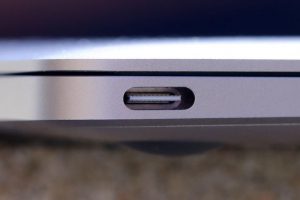You are done with your report and ready to send it to your boss. You quickly fire up your browser or email client and boom, the email is not sending. Pages are not loading. Your muscles become tense, eyes wide open with a reddened face.
Relax! Take a glass of water and do some basic troubleshooting. Your internet not working can be because of several reasons; from a loose cable thanks to your cat or weak WiFi signal or an expired data plan.
Here are some common reasons your internet might not be working.
1. Computer Not connected to the WiFi
WiFi has a way of playing hide and seek sometimes with your devices. It could be an issue with the Router or MiFi or it could be your computer or smartphone acting up. Sometimes it’s bugs on the network drivers installed on your operating system that cause your computer’s connection to be intermittent. If your connection to the WiFi is on and off, then you need to update your wireless network drivers from the device manager.
Sometimes Malware and viruses could be reason why you can’t make a network connection. Be sure to always have a clean computer by running routing virus scans. A firewall perhaps could be standing in the way of your connection. Contact your network administrator for causes of office internet.
If however, your device is connected the WiFi network which you can tell by the network icons on the taskbar, then it’s something else.
Related post: The updated guide to WiFi wireless network connectivity
2. Wrong Internet or Network configurations
Poorly configured network configurations can be a cause of internet issues. Usually when you buy a MiFi or a new phone, the settings are automatically sent to you by your network provider or they come pre-installed on our device. But sometimes you might find yourself switching networks for better deals at which point you need the new service provider’s internet settings. For smartphones, Mifis and 4G routers, the APN is the most important value. Get it wrong and you won’t have an internet connection.
Related post: Africell, Vodafone, Airtel, UTL and MTN Uganda APN and Internet settings you need to know
Those connecting through a WiFi router, it could be a wrong gateway or and IP conflict among connected devices. An IP conflict happens when two or more computers on the same network happen to have the same IP address. Be sure to set your network settings to DHCP which is the default and avoid setting static IP addresses.
Related: Beginner’s guide to DHCP – Dynamic Host Configuration Protocol
3. Your data bundle has run out
If you don’t keep tabs on your usage, your data bundle can run out faster than your expect. If you are on unlimited package, then your subscription could have expired. Most Internet Service Provider(ISP) have a way of enabling you check for your data balance or subscription. On Mobile you can dial specific USSD shortcode for checking data balance and for business customers, you can contact your ISP’s sales representative for details on your outstanding balance.
Related post: All codes for MTN, Africell, Vodafone, Airtel, and UTL Uganda balance check and recharge USSD shortcodes
If you are sure that your subscription is still ongoing, then time to test for something else.
4. Router/MiFi is not functioning properly
Do you have a cat or a dog running around the house, be careful because the little poor thing might be the culprit here. Cats like to mess around with stuff and if your router isn’t strategically placed away from animals or even kids, then it might get messed. A wrong button could be pressed or Ethernet cable disconnected from the modem.
Related post: How to know your Router’s or MiFi’s IP address
For those of you who connect to the internet via 3G/4G LTE routers and MiFis, it’s possible for your device to loose mobile data connection. My router does that alot after running for long hours. So the MiFi keeps the WiFi signal on and hence other devices are able to connect but looses the 3/4G link that connects to the internet. Usually 3G/4G LTE routers and MiFis have status LED lights that show what’s working and what’s not. Usually Red means the link has been lost and green or blue means things are looking up.
The other thing about routers/Mifis is that you might be further away from them, hence you get weak or no wireless signal at all. Check on the network signal bars on your device to see the quality of your signal.
Another thing for weak signal could be a lot interference from neighbors wireless network, Microwave and other Bluetooth devices that share the same frequency spectrum 2.4Ghz as WiFi. Be sure to turn these devices off or switch to the 5GHz WiFi band.
5. Slow internet speeds
Sometimes your internet is actually on, but just too slow you believe the link is down. Your phone or MiFi could drop from advertised 3/4G to 2G or EDGE or the signal quality could seriously drop. I notice this a lot with my Tangerine MiFi. At specific times of the day, the signal bars drop from 3 to just 1 and my internet drives me nuts.
Related post: How to test your Internet speeds
When you subscribe to an internet bundle, your provider promises to keep speeds to certain range say 1-4Mbps. When the speeds go lower than the promised value say to 30%, it’s time to pickup the phone and call customer care. You should demand and explanation or a refund if it’s not satisfactory. It’s common for Internet Service Providers or ISPs to have outages too which are sometimes not communicated to customers.
Before you call your ISP, check that you don’t have an overload on your network. Too many devices on your network and your speeds will inevitably slow down. Turn off unused devices to save on bandwidth.
6. DNS is not working
Domain Name System(DNS) is central to how the internet works. It mostly works in the background, so ordinary internet users might not know about its existence. Summarily, DNS translates human-readable website names aka domains into actual IP addresses that corresponding to servers hosting the website. Your computer automatically picks the DNS address from your ISP when you connect to public hotspot or router/MiFi.
Related post: How to change DNS server on your internet device
However, sometimes this DNS system goes under without your knowledge because it works in the background. This results into failure of translating those domain names into IP addresses. As a result, your browser doesn’t know where to find content for whatever you are looking for online. Chrome for instance will show ERR_NAME_NOT_RESOLVED error to indicate that it can’t translate or find a domain supposedly either because the domain is expired or simply because the DNS server its trying to reach is down.
7. The website you are connecting to is down or blocked
With today’s reliable hosting services, this is unlikely but possible. But Web hosting companies or website constantly come under attack from malicious hackers online. There’s even now more increased data breaches and cyber security incidents than ever before. When a website is down and it’s the only thing you are accessing online, you might wrongfully assume that your internet connection is down. A good place to know if a website is down for you only or everyone else is https://downforeveryoneorjustme.com/.
Also there’s increased censorship of the internet by governments worldwide. Ugandan readers are well aware of the ongoing OTT or social media Tax of Ugx 200/day that must be paid first before services are accessible. If social media is the internet to you and it’s been blocked, again you might falsely conclude your whole internet connection is down.
We can’t exhaust all the reasons why your internet connection might not be working. So when all fails, its best to call up your geek friend or call your service provider’s customer care line.
Image: Pinterest













One thought on “7 Most common reasons why your internet is not working”